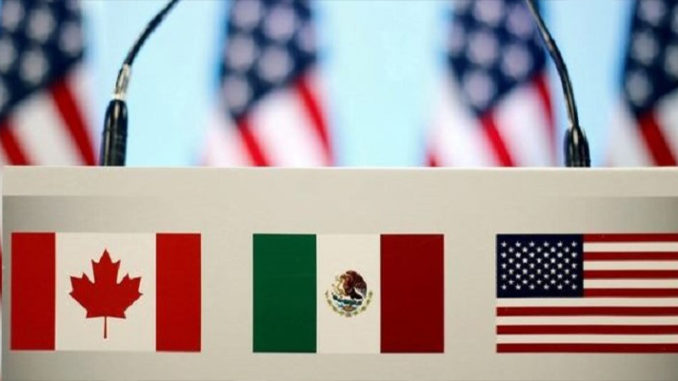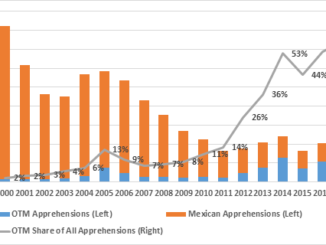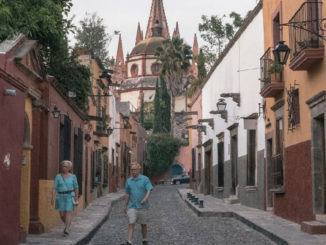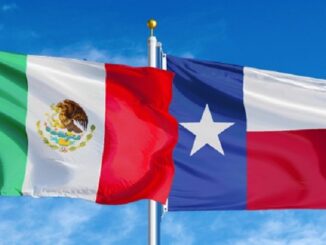
The new treaty could be an important lever for long- awaited modernization.
by
For Mexico, the United States-Mexico-Canada Agreement, an updated version of the North American Free Trade Agreement, is certainly better than having President Trump scrap the pact altogether, as he threatened to do in 2017. Beyond the debate about whether the agreement, which was finally approved by Congress recently and is to be signed into law by Mr. Trump today, has more pluses or minuses for Mexico, the real question is whether it can truly become a powerful lever for the country’s long awaited modernization. At a cost, it could.
The U.S.M.C.A. will put an end to the uncertainty that has rattled the Mexican economy since Mr. Trump became the Republican presidential candidate in 2016. Rules of trade, investment and intellectual property as well as dispute settlement mechanisms are enshrined in an international covenant, and not subject to the Mexican government’s whims. Most importantly, the labor and environmental provisions established in the pact will push Mexico to modernize its economy, work force and institutions over the next decade or so.
Rapid-response dispute-settlement mechanisms, international arbitration, the deployment of American so-called labor and environmental attachés in Mexico and placing the burden of proof on the party that is said to violate the agreement — not on the victim — may insure that Mexican workers will enjoy rights that they have never known in real life. The rules set out in the agreement include provisions for free elections by secret ballot for unions and their leadership, public posting of labor contracts on which union members are free to vote, multiple unions in each plant and transparency and accountability in union business.
Couldn’t Mexico achieve all of this on its own? The experience of the last century suggests otherwise. The agreement may be the equivalent of what the European Economic Community, the precursor to the European Union, meant militarily, socially and economically for countries like Spain and Portugal more than 30 years ago. In addition to labor rights, U.S.M.C.A. also lays out environmental regulations, although its silence on climate change is not encouraging, which several Democratic senators in the United States pointed out in voting against it.
Mexico has never had an independent, democratic and powerful labor movement. There have been flashes: the pre-Revolution strikes at the Cananea Mines in Sonora, and the Rio Blanco Cotton Mill in Veracruz; the oil workers’ strike that led to nationalization in 1938; a major railroad workers’ movement in 1958-59; electrical workers unions during the 1970s and 80s; the telephone workers union since 1976. But the country needs a robust labor movement to reduce inequality and increase wages and productivity. Walmart, for example, one of the country’s largest private employers, is barely unionized, and the unions that have emerged are those that are in accord with employers.
In 1994, the North American Free Trade Agreement was supposed to be the country’s ticket to modernity, by making it more open to foreign investment and with a strengthened rule of law. Over the last quarter-century, NAFTA created a modern and competitive export sector, raised foreign investment, established the rule of law at least for investors and companies from abroad and contributed somewhat to the country’s deferred democratization.
But despite important efforts, Mexico’s economic growth has been sluggish, and it is one of the more unequal countries in Latin America. Slightly less than half the population lives in poverty, and continues to be plagued by unending violence and corruption. NAFTA left the enforcement of non-trade issues like labor rights, environmental protection, intellectual property rights and corrupt practices to Mexico itself. That was a mistake.
A good example lies in the brightest jewel of NAFTA’s crown: Mexico’s automobile industry, which employs nearly one million workers, has made the country one of the largest auto manufacturers in the world, and incentivized car companies to move jobs there. In general, labor organizations in the automobile industry are de facto company unions. The Volkswagen factory in Puebla, which has an independent union, is one of the few exceptions.
Wages average less than $500 per month, miserably low given productivity levels in the United States and Canada. This is why American and Canadian negotiators insisted on inserting a clause, likely unviable, in the U.S.M.C.A. whereby 40 percent of a “North American vehicle” must be manufactured by laborers making at least $16 per hour. Moreover, the pact’s provisions requiring greater North American parts in all vehicles made where there is access to free trade on steel used for building them may seriously damage the industry in Mexico.
Unfortunately, among Mexico’s comparative advantages in international competition for investment and jobs have always been cheap labor, sweetheart unions and lax environmental protections in deed, if not in law. As these shameful traits fade away, many investors may, of course, do the same. If all of this occurred in the context of a booming economy in the United States and a strong one in Mexico, the impact would be softened. But given the unease President Andrés Manuel Lopez Obrador inspires in the business community, these changes, though crucial, are also perilous.
Felipe González, Spain’s socialist prime minister between 1982 and 1996, who is known as the architect of his country’s ascent to modernity, often referred to the need for “anchoring” Spain’s progress abroad. Well-acquainted with his country’s past demons, he meant that only by joining the North Atlantic Treaty Organization and the European Economic Community could the Spanish avoid regression and accomplish modernization. Time has proved him right.
The U.S.M.C.A. is not the Treaty of Rome, which set the foundations of the European Union, by a long shot. Canada initially sought to include human, Indigenous and gender rights provisions in the new agreement, as well as making it a potent force against climate change. Mexico’s 1999 free trade agreement with the European Union includes a democracy and human rights clause. The Canadians eventually gave up, though, and nothing of this came about this time, a fate that might have been expected with Mr. Trump in the White House. A pity, but if the United States president elected in November believes in these goals, they can be revisited.
In the end, the U.S.M.C.A. could have been much better for Mexico, but it offers the country an opportunity: modernization in significant realms of national life. Having thankfully eliminated the notion of authoritarian modernization, this is the road best traveled. Or rather, most likely the only one.
Jorge G. Castañeda (@JorgeGCastaneda), Mexico’s foreign minister from 2000 to 2003, is a professor at New York University.



